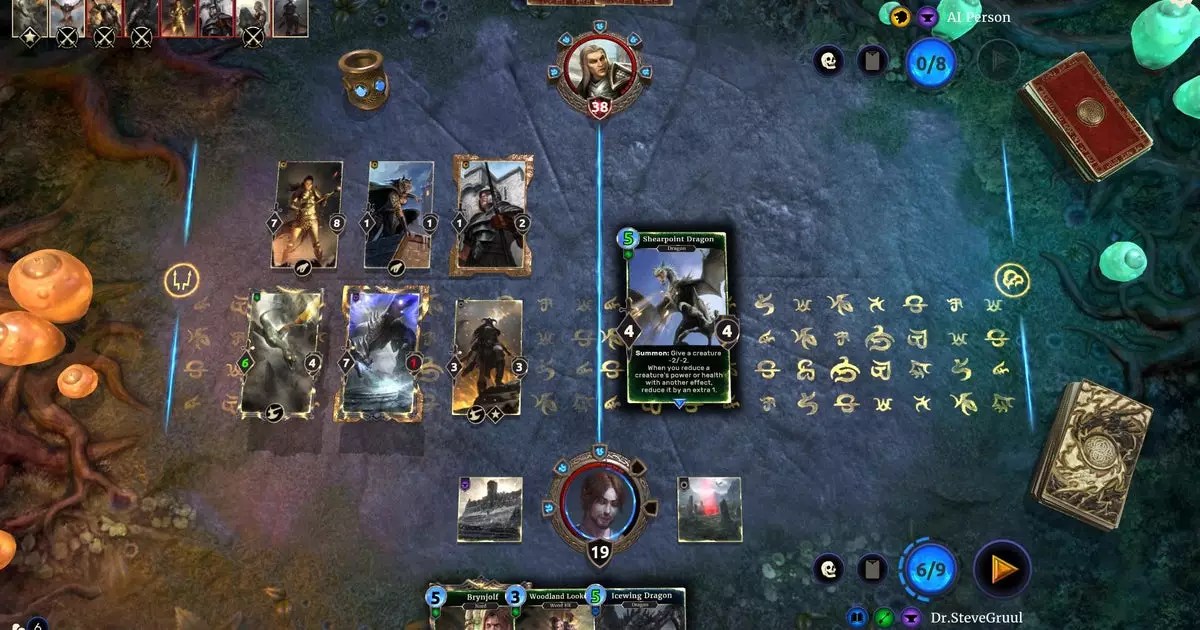In a move that has surprised few in the gaming community, Bethesda has announced that their free-to-play card game, The Elder Scrolls: Legends, is officially coming to an end. This decision follows five years of inactivity and a lack of updates, with the game set to shut down its servers on January 30, 2025. As players are increasingly reminded through in-game notifications and announcements on the Steam page, Legends has now reached its final chapter.
The shut down of Legends is representative of a troubling trend within the gaming industry—a pattern that sees live service and free-to-play games falling into oblivion once they fail to capture a sustainable player base. Indeed, the announcement marks more than just the end of a game; it serves as a stark reminder of the ephemeral nature of digital entertainment. For supporters of The Elder Scrolls universe, this is a bittersweet conclusion to another chapter of a much-beloved franchise that originally promised expansive, immersive gameplay.
A Flawed Concept of Gaming Longevity
Brendy’s earlier review of The Elder Scrolls: Legends provided insights into its mechanics, praising how it built upon the foundation laid by popular competitors like Hearthstone, yet critiquing its inability to fully leverage the rich lore and lore of the Elder Scrolls franchise. The rune system was highlighted as a fresh addition, yet a portion of the audience remained unencumbered by the complexities of its gameplay and the disappointment from the lack of significant expansions after 2019.
When a game does not maintain a robust player base, it becomes vulnerable. The absence of offline modes limits the longevity for dedicated fans, and these games often rely entirely on active servers. While offline play might seem a relic, it remains a compelling aspect that would allow players to continue enjoying their investment even after a company decides to end support. Legends will inevitably join the ranks of other defunct titles, a symbol of a venture that promised community and engagement yet fell short of its aspirations.
The Future of Gaming and Consumer Expectations
What is particularly disconcerting is the message being sent to gamers when products receive no ongoing support. Each shutdown reinforces the idea that much of a developer’s work can vanish overnight, ultimately leading to disillusionment among the community. This begs the question: —how can players feel valued when their loyalty is met with such negligence?
In contrast to other forms of entertainment—such as films or literature—gaming’s transient nature raises eyebrows. Where are the preservation efforts? How can the gaming world reassess its approach to sustainability in game design? There is an urgent need for a shift in how game developers plan for the future of their titles. The Elder Scrolls: Legends was a mayfly in the vast ecosystem of gaming, illustrating a cycle that many would prefer to see change. Particularly in an industry teeming with passion and innovation, it’s a shame that so much effort can seemingly be discarded without regard.
The closure of Legends may offer a moment of reflection for both developers and players, urging a reevaluation of how we engage with games that promise boundless experience yet risk becoming little more than an ephemeral blip on the gaming radar. The question remains: will the industry rise to this challenge?


Leave a Reply